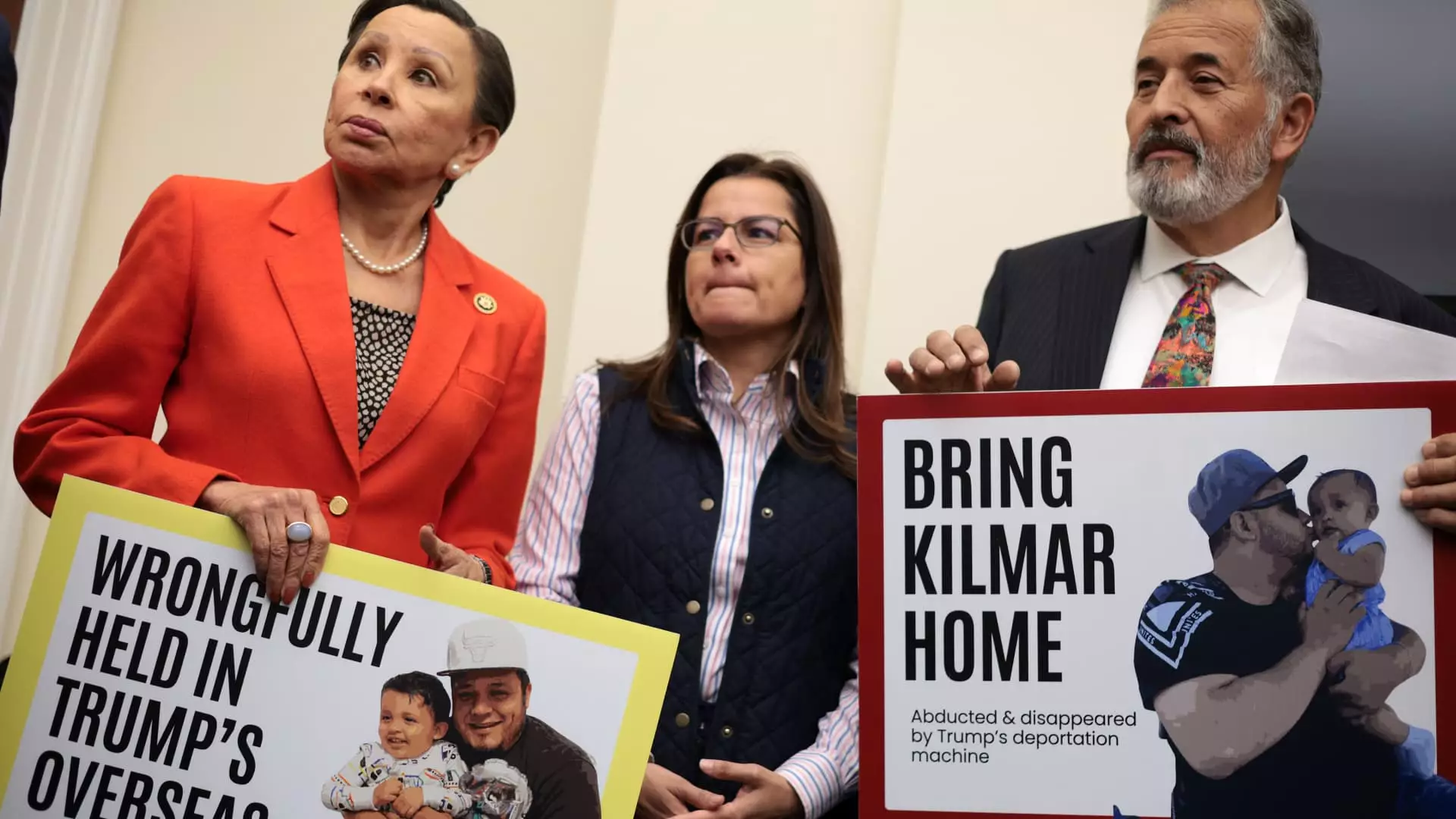The recent events surrounding the wrongful deportation of Kilmar Abrego Garcia shine an unsettling light on the interplay between immigration policy and the integrity of judicial systems in the United States. A U.S. District judge’s recent inquiry into whether the Trump administration defied her court orders exposes not just an individual case of injustice but rather a systemic failure where the rule of law becomes subordinate to political whims. In an era where executive power seems increasingly unrestrained, the judiciary’s very role as a check on government action is under siege.
Judge Paula Xinis’s admonishments in court were stark: the Trump administration, in her appraisal, has not merely missed deadlines; it has undermined the very essence of compliance with court directives. Her insistence on obtaining documents and testimony reflects a growing frustration with the administration’s lack of transparency and accountability. When a government fails to act in accordance with its own legal framework, it raises serious questions about its respect for human rights and due process—a foundational element of a civilized society.
A Chilling Impact on Vulnerable Communities
The implications of Abrego Garcia’s deportation extend beyond his personal plight; they resonate across immigrant communities. Deportations, particularly under dubious circumstances, fan the flames of fear and uncertainty among millions striving for safety and stability. The absence of judicial safeguarding in such cases reveals a deeply troubling trend where deportation is employed not merely as a means of enforcement but as a political statement—a tool wielded against individuals whom the state deems undesirable. This situation is exacerbated by rhetoric that characterizes immigrants as threats rather than human beings with rights and dignity.
The utilization of the Alien Enemies Act in this case, a relic from the late 18th century, showcases how antiquated and potentially dangerous laws can be misapplied in modern contexts. This regressive policy not only targets individuals but sends a stark message to societies built on inclusive principles: the rights to protection and fairness depend exclusively on one’s nationality. Such an approach is fundamentally at odds with the liberal ideals of equality and justice that should underpin governmental actions.
Judicial Independence at Risk
The Trump administration’s mounting antagonism toward the judiciary represents a direct assault on an essential pillar of democracy—the independence of the courts. The remarks made by Judge Xinis, who explicitly stated that she would “not tolerate gamesmanship,” underscore a broader concern among judicial advocates regarding executive overreach. The tensions between the branches of government have reached a nadir where accusations of ‘judicial overreach’ serve as a veneer for undermining the essential checks and balances that are integral to American governance.
The Judge’s decision to require depositions from officials in the Department of Homeland Security and ICE underscores the urgent need to hold governmental bodies accountable when they refuse to uphold justice. The notion that officials might invoke attorney-client privilege as a shield against transparency reinforces the troubling trend of opacity in governmental responses. That a government would prioritize legal technicalities over the humanity of individuals casts a long shadow over its moral standing.
The Role of Public Advocacy
The advocacy of individuals like Jennifer Vasquez Sura, Abrego Garcia’s wife, is crucial and exemplifies the power of public protest in the face of injustice. Her heartfelt pleas illuminate not only her personal anguish but also the collective struggle that countless families face in similar predicaments. The involvement of figures such as Senator Chris Van Hollen, who plans to travel to El Salvador, demonstrates how public officials can lend their voices to amplify civil rights concerns. The urgency conveyed by those in the advocacy space challenges the government to act expeditiously and humanely, amid a landscape fraught with bureaucratic indifference.
Moreover, the attempt to leverage international relations—forcing a foreign government to accommodate U.S. actions—centralizes the role of diplomacy in this complex legal scenario. Yet, when the machinery of government distorts its diplomatic functions to manipulate outcomes, it degrades the integrity of entire institutions and raises alarms about political coercion in the realm of international relations.
The Narrative of Fear and Resistance
Ultimately, Kilmar Abrego Garcia’s case stands as a microcosm of a larger narrative of fear, resistance, and hope in a post-truth world. It invites reflection on the fragility of justice in an administration unmoored from ethical grounding, where the very definition of ‘justice served’ becomes elastic and malleable to political agendas. While the court’s role should ideally serve as a fortification against executive caprice, the reality is that the fight for justice is far from guaranteed. As citizens, we must remain vigilant and advocate for a system that honors its commitments—no matter the political climate. The implications of complacency are dire; without a robust judiciary and an engaged citizenry, the line between democracy and authoritarianism may blur perilously.

